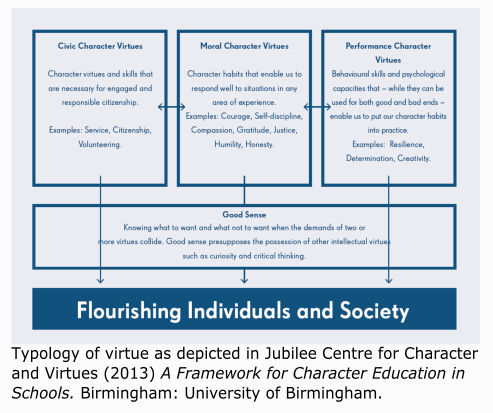![]()
In the previous section, you learned about the philosophy of virtue ethics. This section explores one concept central to this philosophy in more depth – phronesis.
Aristotle believed that in order to develop as human beings, we need to develop virtues from across all four of the classification of virtues as set out in the Jubilee Centre’s A Framework for Character Education in Schools.
This typology of virtues includes categories of intellectual, civic, moral and performance virtues, that guide our quest for knowledge and information. It is phronesis, or practical wisdom, which is the overarching guide to knowing what to want and what not to want, when the demands of two or more virtues collide, and to integrate such demands into an acceptable course of action. In this section, we explore the meaning of phronesis.

Watch the film below in which Professor Kristján Kristjánsson explores phronesis.
![]()
![]()
Download the presentation Phronesis as an Ideal in Professional Ethics: Some Preliminary Positionings and Problematics.
Working in small groups, think about a time where you have demonstrated phronesis in your personal and professional life this week and explain what factors affected your decision-making, and which virtues came into conflict.
![]()
Watch this short video which gives an explanation of phronesis, including input from academics such as Prof. Barry Schwartz. | Watch this short video which shows a discussion of the account of human well-being and the good life presented by Aristotle in his Nicomachean Ethics and Politics. |






